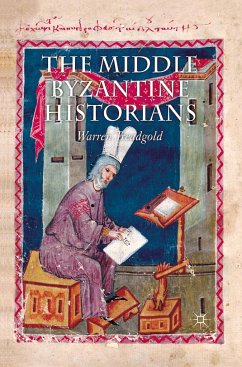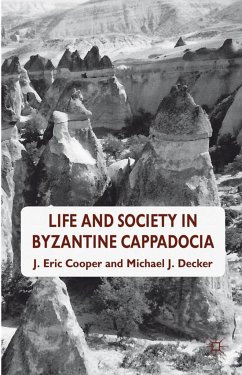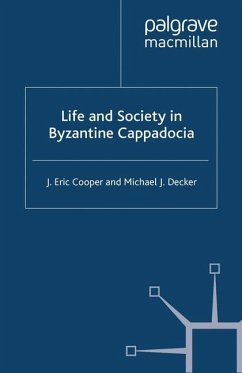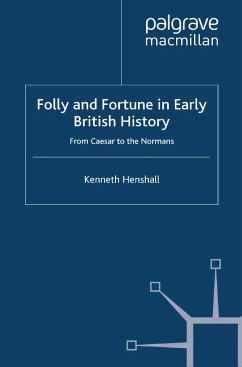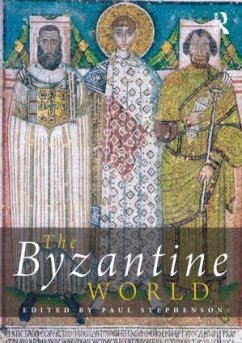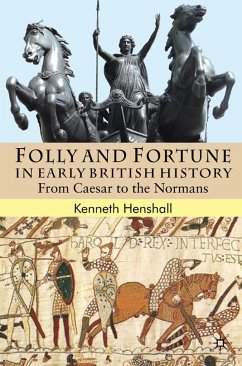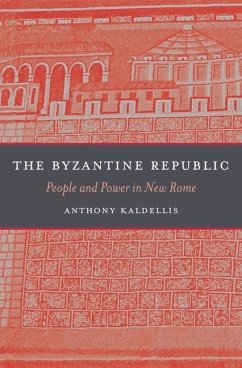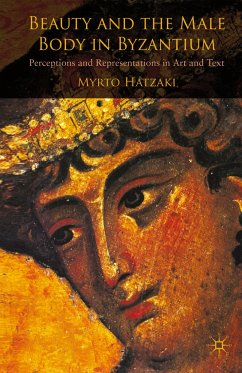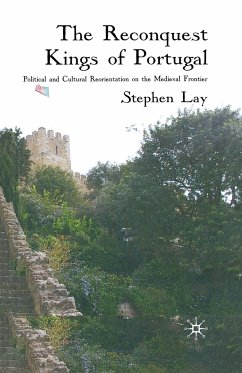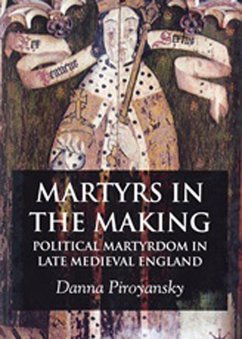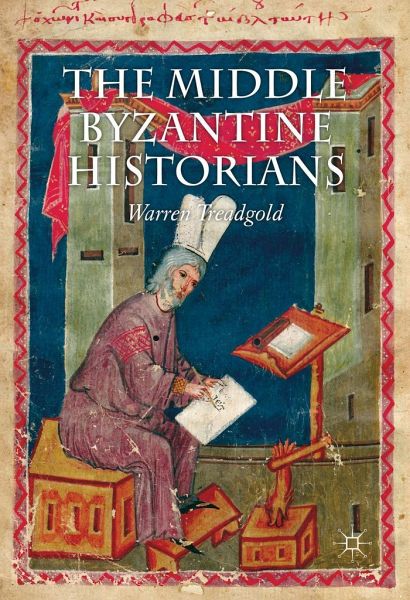
W. Treadgold
Gebundenes Buch
The Middle Byzantine Historians
Versandkostenfrei!
Versandfertig in 6-10 Tagen
Weitere Ausgaben:

PAYBACK Punkte
57 °P sammeln!





This volume, which continues the same author's Early Byzantine Historians , is the first book to analyze the lives and works of all forty-three significant Byzantine historians from the seventh to the thirteenth century, including the authors of three of the world's greatest histories: Michael Psellus, Princess Anna Comnena, and Nicetas Choniates.
Warren Treadgold is National Endowment for the Humanities Professor of Byzantine Studies at Saint Louis University, USA and author of many books and articles on Byzantine history and literature, including Byzantium and Its Army (1995), A History of the Byzantine State and Society (1997), A Concise History of Byzantium (2001), and The Early Byzantine Historians (2007).
Produktdetails
- Verlag: Palgrave Macmillan / Palgrave Macmillan UK / Springer Palgrave Macmillan
- Artikelnr. des Verlages: 978-1-137-28085-5
- 2013
- Seitenzahl: 546
- Erscheinungstermin: 22. November 2013
- Englisch
- Abmessung: 236mm x 163mm x 38mm
- Gewicht: 966g
- ISBN-13: 9781137280855
- ISBN-10: 1137280859
- Artikelnr.: 37753722
Herstellerkennzeichnung
Libri GmbH
Europaallee 1
36244 Bad Hersfeld
gpsr@libri.de
"There are books on this topic that summarize existing scholarship, but this is not one of them. Warren Treadgold presents original arguments for almost every text that he discusses and usually makes a strong case . . . In sum, this is definitely a book that any scholar who uses these texts will have to consult and either agree or disagree with, and that includes almost all Byzantinists who work in this period." Professor Anthony Kaldellis, Ohio State University, US
"The Middle Byzantine Historians offers invaluable portraits of known and relatively obscure historians, their work, and the Byzantine intellectual scene as a whole. A welcome addition to our body of knowledge, MBH raises important questions and demands Byzantinists'
"The Middle Byzantine Historians offers invaluable portraits of known and relatively obscure historians, their work, and the Byzantine intellectual scene as a whole. A welcome addition to our body of knowledge, MBH raises important questions and demands Byzantinists'
Mehr anzeigen
careful attention, engagement, and reaction." - Speculum
"The book accords due weight to a tradition of historical writing stretching back to classical and biblical times and enables us to put individual histories into context, in a way which was not previously possible. One of the great strengths of this volume is the exhumation of lost histories, which affords a much better balanced appreciation of the development of historical writing in the period under consideration The result is a book which establishes what can be known with reasonable certainty about the middle Byzantine historians." - Journal of Ecclesiastical History
"Treadgold's erudite studies of the lives and careers of these Byzantine historians will prove useful to students, as will his detailed explanations of the form and content of their works. Furthermore, the final chapter, 'The Historians as a Group,' explores a variety of themes, which include the historians' backgrounds, interests, originality, writing styles, relative popularity as indicated by surviving numbers of manuscripts, and a general overview of history writing across the period. These results are fascinating . In short, Treadgold has woven many important new findings into a comprehensive handbook on the Byzantine historians. This excellent book will be essential reading for students of Byzantine history, and its fresh interpretations will further scholarly debates." - English Historical Review
"The book accords due weight to a tradition of historical writing stretching back to classical and biblical times and enables us to put individual histories into context, in a way which was not previously possible. One of the great strengths of this volume is the exhumation of lost histories, which affords a much better balanced appreciation of the development of historical writing in the period under consideration The result is a book which establishes what can be known with reasonable certainty about the middle Byzantine historians." - Journal of Ecclesiastical History
"Treadgold's erudite studies of the lives and careers of these Byzantine historians will prove useful to students, as will his detailed explanations of the form and content of their works. Furthermore, the final chapter, 'The Historians as a Group,' explores a variety of themes, which include the historians' backgrounds, interests, originality, writing styles, relative popularity as indicated by surviving numbers of manuscripts, and a general overview of history writing across the period. These results are fascinating . In short, Treadgold has woven many important new findings into a comprehensive handbook on the Byzantine historians. This excellent book will be essential reading for students of Byzantine history, and its fresh interpretations will further scholarly debates." - English Historical Review
Schließen
Für dieses Produkt wurde noch keine Bewertung abgegeben. Wir würden uns sehr freuen, wenn du die erste Bewertung schreibst!
Eine Bewertung schreiben
Eine Bewertung schreiben
Andere Kunden interessierten sich für




